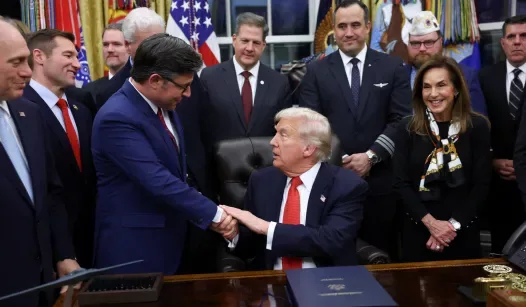The Republican Party faces a significant political risk as it continues to grapple with health care policy, particularly in the wake of the Affordable Care Act (ACA), commonly known as Obamacare. As the GOP prepares for upcoming elections, the absence of a clear and comprehensive alternative to Obamacare could alienate voters who are concerned about their health care options.
Health care remains a top priority for American voters, and for many, the ACA has been a contentious issue. While some Americans appreciate the coverage it provides, others criticize its costs and regulations. The GOP has long promised to repeal and replace Obamacare, yet the party has struggled to present a viable alternative that resonates with the electorate. This failure to address health care adequately could have dire consequences for the party’s political future.
A recent poll indicated that health care ranks among the top concerns for voters across party lines. With rising premiums, prescription drug costs, and access to care being at the forefront of public discourse, the GOP’s silence on a health care plan could be interpreted as a lack of concern for the electorate’s needs. As the party seeks to regain control in Congress and potentially the White House, it must prioritize developing a cohesive health care strategy that not only appeals to its base but also addresses the broader concerns of the American public.
Moreover, the political landscape is shifting. Democrats have seized on the GOP’s inaction, framing it as an inability to govern effectively. This narrative can be damaging, especially in swing states where health care is a critical issue. If the GOP fails to articulate a clear vision for health care reform, it risks ceding ground to Democratic candidates who are willing to advocate for expanding access and lowering costs.
To mitigate this risk, the GOP needs to engage in a robust dialogue about health care reform. This involves not only outlining potential alternatives to the ACA but also addressing the challenges that many Americans face in accessing affordable care. The party should consider proposals that focus on lowering prescription drug prices, expanding health savings accounts, and enhancing competition in the insurance market. By presenting a thoughtful and comprehensive approach, the GOP can demonstrate its commitment to improving health care for all Americans.
In conclusion, the GOP cannot afford to ignore the health care debate any longer. As the political landscape evolves, the party must take proactive steps to develop and communicate a clear health care strategy. Failing to do so not only jeopardizes its electoral prospects but also risks alienating a significant portion of the electorate who are deeply concerned about their health care options. The time for action is now, and the GOP must rise to the occasion.
